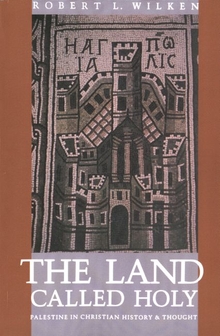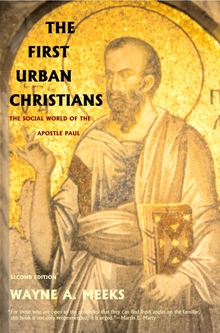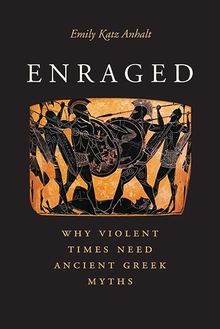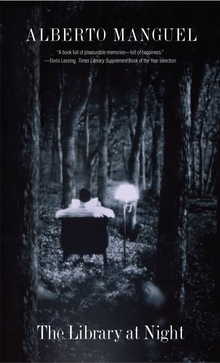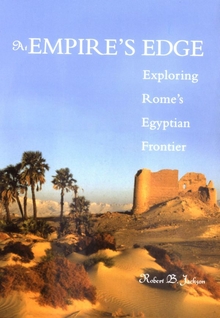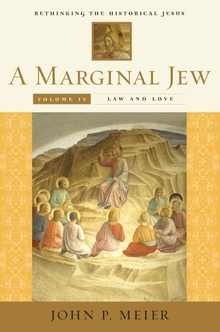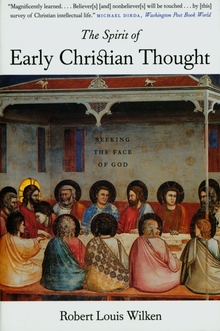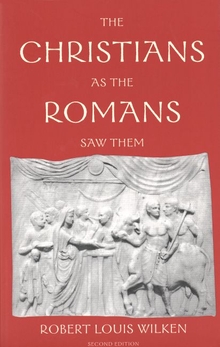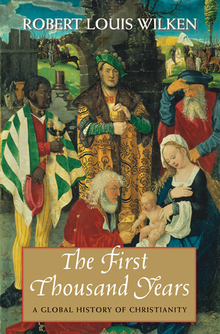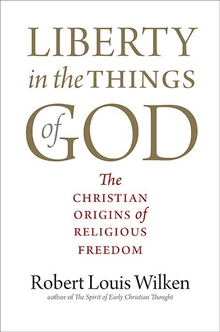The Land Called Holy
WARNING
You are viewing an older version of the Yalebooks website. Please visit out new website with more updated information and a better user experience: https://www.yalebooks.com
Palestine in Christian History and Thought
Robert Louis Wilken
The heart of the book considers how Jerusalem and the biblical land came to be viewed not simply as a place of pilgrimage, but as a place to live, a country with a unique history and privileged status in the Christian world. Wilken concludes with an account of Christian hopes for restoration of Jerusalem after the Muslim conquest, the continuation of Christian life under Muslim rule, and the adoption of Arabic as the language of Christian worship and thought.
"This very readable book is an original and important contribution to the study of ancient Christianity. It will help people think not only of the ancient world but also of the Holy Land today."—Rowan A. Greer, Yale Divinity School
"The history of Jewish and Christian relations in antiquity and the early Middle Ages provides knowledge of how the two traditions came to both understand and misunderstand each other. This not only is helpful in studying the past but has significant religious and political implications for the present. Wilken's book is a major contribution to this topic. It promises to be one of the most important books on Christian antiquity of the decade."—Bernard McGinn
"The Christian appropriation of the Holy Land, between the destruction of the Jewish Temple at Jerusalem in the first century and the Muslim invasion of the sixth, is the theme of [this book]. . . . Wilken is a knowledgeable and articulate guide to the shifting apologetics that transformed the land promised to Abraham and the Jews into the holy ground of Christian saints and pilgrims. . . . Mr. Wilken's theme is a magnificent one, illuminating the Middle Eastern origins of two great religions and, at the end, pointing to the future impact of a third. He exposes the gnarled and tenacious roots of problems that are very much with us today."—G. W. Bowersock, New York Times Book Review
"Wilken breaks new ground in mapping Christian concepts of "Holy Land" in general and of Jerusalem in particular, from the time of Jesus until the Muslim invasion of 634. . . . Strongly recommended for anyone interested in such diverse issues as late antiquity, Jewish-Christian relations, and even modern Middle East politics."—Choice
"Authoritative yet eminently readable. . . . A great deal of ground has been covered in this masterly account."—W. H. C. Frend, Church Times
"The Land Called Holy: Palestine in Christian History and Thought by Robert L. Wilken . . . examines, with formidable scholarship, the very idea of a holy land."—The Arkansas Democrat Gazette
"The Land Called Holy is a rich work, evocative and sympathetic in accompaniment with its careful discussion of the texts and archaeological remains out of which its author has reconstructed the idea of Christian Palestine in late antiquity. . . . The book could profitably be taken up by all thoughtful readers who wish to know the origins of their political world, and who want to grasp why this land is fought for. They can be grateful to Robert Wilken for providing this careful study."—Robin Darling Young, First Things
"How the land of the Bible became a holy land to Christians between the fourth and seventh centuries is the subject of this fascinating book. . . . Wilken has a good story to tell, and he tells it well. This is a book of real value for those who have visited or plan to visit the Holy Land."—America
"This book is remarkable in two ways. First, Wilken masters an enormous breadth of material in a work spanning more than a millennium without sacrificing a graceful, very readable style. Second, despite his panoramic reach, he remains attentive to subtle, gradual shifts in thought and language. . . . This is an extraordinarily rich and important book, essential for any student of Christian thought."—Thomas A. Smith, Religious Studies Review
"This [book] is a lavish feast served up on a scope rarely attempted by historians anymore because so few can maintain the critical control of so much primary and secondary material as Wilken has achieved. I love this book, and I wish I had written it. . . . A great book about the development of the idea of a special Christian place."—Dennis E. Groh, Anglican Theological Review
"[A] lucidly and attractively written study, superbly documented from both familiar and little-known primary sources. . . . A fascinating study that is important for understanding both Christian history and current sociopolitical issues, and that sheds new light on the historical antecedents of the Israel-Palestinian conflict."—Howard Clark Kee, American Historical Review
"Wilken is one of this country's most distinguished patristics scholars. His new book on the rise and significance of the Holy Land in both the imagination and history of Christians is a superbly written and researched piece of historical scholarship."—Commonweal
"An erudite and delightful book to read, to argue with, to learn from. Anyone going to Israel ought to go armed with an archaeological guide book in one hand, and this highly recommended intellectual and theological survey in the other."—John A. McGuckin, Theological Studies
"A treasure-trove for anyone interested in the history of early Christianity. . . . The work is an accessible and enjoyable account of the emergence of a central idea in early Christian theology. . . . Wilken tells the tale with a marked lucidity of style and an impressive command of scholarly material."—Stephen W. Need, Theology
"A highly readable, sophisticated, and intelligent exposition on an important subject. There is no book of comparable chronological scope. . . . [Wilken] skillfully integrates archaeology, hagiography, studies of pilgrimage, monasticism, patristics, and scriptural exegesis. The Land Called Holy should be of interest not only to scholars of religious studies but also to ancient historians, Byzantinists, medievalists, and Middle Eastern specialists. . . . Wilken has accomplished a difficult task well, as the reader does acquire an understanding of the development of the idea of a Christian Holy Land."—Walter Kaegi, The Journal of Religion
"The historical and spiritual (not political) presence of Christianity in the land of the Bible comes alive for us. . . . the prose in this lovely book at times moves with the poetic rhythm of someone whose heart is immersed in this land. A treasure for Christian pilgrims."—Father Carroll Stuhlmueller, C.P., The Bible Today
"In this splendid book, Robert Wilken takes the reader on a tour, not of the Christian Holy Land, but of the idea of a Christian Holy Land. Wilken is a demanding guide, but his enthusiasm is infectious, and those who keep up with him will find themselves reading texts of prophets and poets, pilgrims and apocalypticists, propagandists and theologians; they will peer at the ruined walls and mosaic floors of churches and synagogues from Galilee to the Negev and across the Jordan. . . . I look forward to Wilken's next tour."—Mark N. Swanson, Pro Ecclesia
"A fascinating work. . . . Richly documented. . . . The importance of knowing about centuries long past for understanding our own times is brilliantly demonstrated in this informative and well-printed book."—Robert T. Handy, Church History
"May Wilken's work of extraordinary erudition bring numerous readers to a deeper understanding of the history and spiritual vision that imbued so many in the early church. Not only is this an extremely important work for the history of patristic exegesis but it will be very helpful to pilgrims and students traveling to Israel."—Lawrence E. Frizzell, Catholic Biblical Quarterly
Publication Date: August 31, 1994
9 b/w illus.

